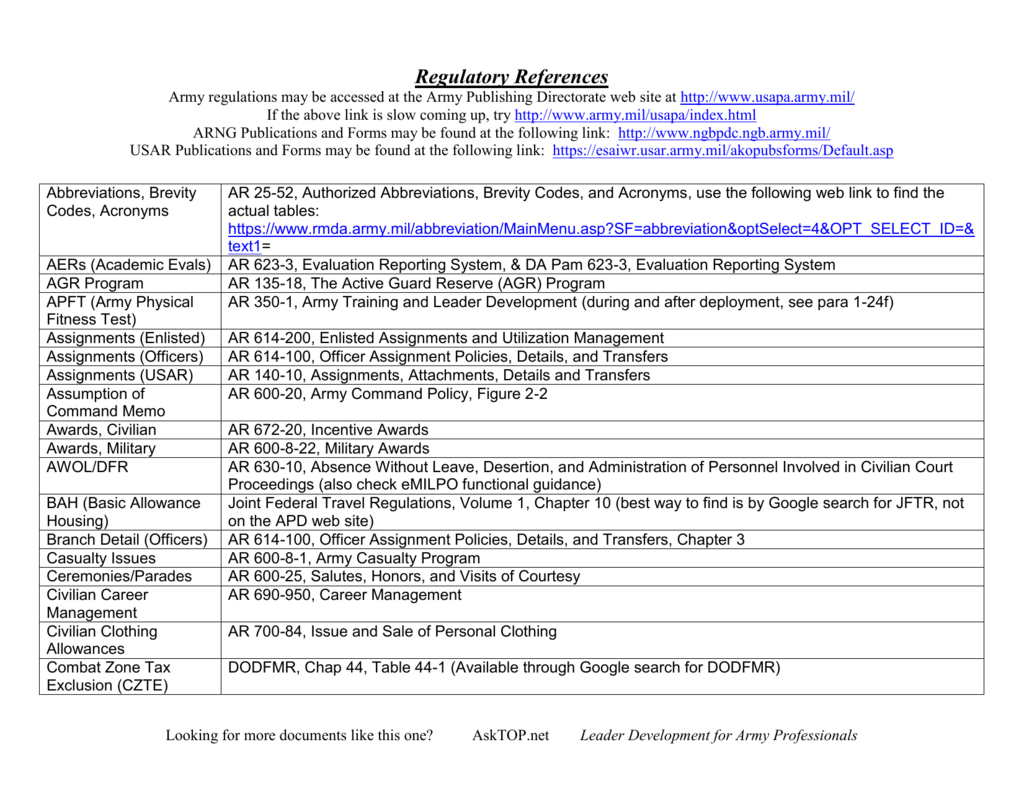Army Awol Regulation : What it is
Being away from the military without permission is a serious offense that could have significant consequences. The Army AWOL (Absent Without Leave) regulation is in place to ensure discipline and maintain the effectiveness of the armed forces. In this article, we will delve into the details of the regulation, explain its importance, and address frequently asked questions related to AWOL. So, let's get started!
What Does the Army AWOL Regulation State?

The Army AWOL regulation sets forth the guidelines and policies regarding individuals who are absent from their duties without official leave. It outlines the steps that need to be taken when a soldier is absent without proper authorization.
According to the regulation, soldiers who are absent without leave for more than 30 days can be considered deserters and may face severe punishment, including dishonorable discharge, forfeiture of pay and allowances, and even imprisonment.
It's crucial to understand that going AWOL not only reflects negatively on a soldier's character but also poses a risk to the overall mission readiness and morale of the unit. Therefore, strict adherence to the AWOL regulation is essential to maintain a disciplined and effective military force.
Consequences of Going AWOL

Going AWOL can have serious consequences that can affect a soldier's future both within and outside the military. It is not a decision to be taken lightly, as it can lead to various legal, career, and personal ramifications.
1. Legal Consequences: The military law treats AWOL as a serious offense. Soldiers who are caught going AWOL can face legal charges, court-martial, and the possibility of receiving a criminal record. The severity of the punishment may vary depending on the circumstances, such as the duration of absence and the impact on the unit's operations.
2. Career Implications: Going AWOL can have a detrimental impact on a soldier's military career. It can result in a dishonorable discharge, which can severely limit future employment prospects. Additionally, an AWOL status can prevent soldiers from receiving promotions, benefits, and other opportunities within the military.
3. Personal Consequences: Besides the legal and career implications, going AWOL can also take a toll on a soldier's personal life. It can lead to strained relationships with family and friends, financial difficulties due to the loss of income, and a sense of guilt or shame.
FAQs About Army AWOL
Q: How long can a soldier be AWOL before being considered a deserter?
A: According to the Army AWOL regulation, soldiers who are absent without leave for more than 30 days can be considered deserters. This classification carries severe consequences, including dishonorable discharge and potential criminal charges.
Q: Can a soldier go AWOL due to personal or family issues?
A: While personal or family issues can be challenging, it is essential for soldiers to follow the proper channels and seek the necessary permission to address these matters. Going AWOL is not an appropriate response and can lead to significant negative consequences.
Q: Can soldiers who go AWOL ever return to the military?
A: Yes, in some cases, soldiers who have gone AWOL can potentially return to the military. However, this largely depends on the circumstances, the soldier's conduct after going AWOL, and the discretion of the military authorities. The soldier would typically have to face disciplinary actions and go through a reintegration process.
Conclusion
The Army AWOL regulation plays a vital role in maintaining discipline and order within the military. Going AWOL is a serious offense that can have significant legal, career, and personal consequences. It is essential for soldiers to understand and abide by the regulations and seek proper authorization when faced with personal or family issues. If you have any further questions, make sure to consult with your chain of command or legal advisors.
Remember, being a part of the military means upholding the values of integrity, duty, and responsibility. Going AWOL goes against these principles and can have far-reaching implications. Stay committed, stay disciplined, and always follow the rules!
Army Awol Regulation - Army Military
 Image Source : armymilitary.net
Image Source : armymilitary.net Army Awol Regulation - Army Military
 Image Source : armymilitary.net
Image Source : armymilitary.net Essential Guide To Military Desertion And AWOL: Overview, Review Of
 Image Source : www.amazon.com.br
Image Source : www.amazon.com.br desertion awol absence regulation instruction commanders dod unauthorized
US Army AWOL Defense: A Practice Guide And Formbook - Kindle Edition By
 Image Source : www.amazon.com
Image Source : www.amazon.com awol formbook
39-Year AWOL Army Sgt. Surrenders - CBS News
 Image Source : www.cbsnews.com
Image Source : www.cbsnews.com awol army
AWOL Soldier And Two Veterans Reportedly Detained Trying To Enter South
/arc-anglerfish-arc2-prod-mco.s3.amazonaws.com/public/DHJW5UOVQREQLN6PLUAU5X4CTE.jpg) Image Source : www.armytimes.com
Image Source : www.armytimes.com awol sudan south soldier army
R. Stevie Moore A.w.o.l.
awol gone military go soldiers christian decide ua someone did know stevie moore unfair notice please use
Afghan Troops Going AWOL From JBSA
 Image Source : www.mysanantonio.com
Image Source : www.mysanantonio.com awol afghan army troops jbsa soldiers going
Awol formbook. Army awol regulation. Essential guide to military desertion and awol: overview, review of. Afghan troops going awol from jbsa. Awol gone military go soldiers christian decide ua someone did know stevie moore unfair notice please use